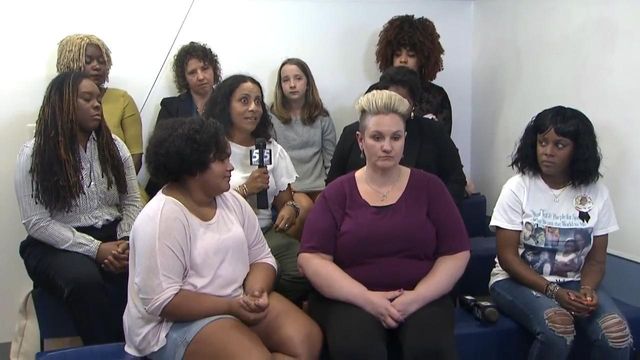Less likely to talk, less likely to seek help: Gender stereotypes keep men from mental health treatment
A 2019 survey from the U.S. Centers for Disease Control and Prevention found women were more likely than men to have received any mental health treatment.
Posted — UpdatedThe study also found: “Avoiding doctors specifically is something that men not only encourage other men to do directly but also indirectly because it demonstrates how tough they are.”
Panelist Tinaya Gray is a mother of four children. Her oldest son has a mental health diagnosis and goes to high school.
“I immediately thought about the world of men and boys in particular,” Gray said. “Their interactions are normalized without much language and with actions.
“And so, what you will find with boys who are different or who are not typical … they are ostracized.”
Gray said her son is different. She said he’s not like the other kids – but he tries to fit in – and sometimes he can’t. “In the world of men,” as she put it, that’s not always met with compassion like this lesson from a coach.
“I think that’s just the mentality of … what I’ve heard said to him was… ‘Nobody’s going to care in the real world, so you got to find a way to deal,’” Gray said. “That’s actually been said.”
Some people think modern parents are too soft on kids. However, there is clinical science that supports “tough love.”
The study found that kids with helicopter parents showed stronger scores associated with anxiety and depression – and helicopter parenting “was also associated with poorer functioning in emotional functioning, decision making and academic functioning.”
There are times where it’s ok and healthy for a parent to tell a child to “toughen up.” However, there is a difference between coddling someone and recognizing a mental health issue. Furthermore, there’s a difference between a kid who is upset about a setback, and someone who is battling depression.
According to the experts and parents on the panel, identifying these conditions, knowing the triggers for those conditions and understanding the differences are key.
“No one is taking time to say, ‘why?’” Gray said. “Or … ‘are you struggling with something?’
“We’re not having those questions with boys in particular because boys are expected to have masculine energy, and for that masculinity to carry them through adversity. And, it’s almost seen as a weakness for boys to struggle with anything.”
The answer for parents is complicated. The panelists said one answer is education, and discussions like this one, at school and at home.
“We’ve transformed how we define acceptance,” Gray said. “We’ve come to accept the gay and lesbian and LGBTQ kids around us. I see it. I’m so proud of this next generation.
“But that same level, acceptance doesn’t really exist of kids who are struggling with their mental health.”
In Depth With Dan
Related Topics
• Credits
Copyright 2024 by Capitol Broadcasting Company. All rights reserved. This material may not be published, broadcast, rewritten or redistributed.






